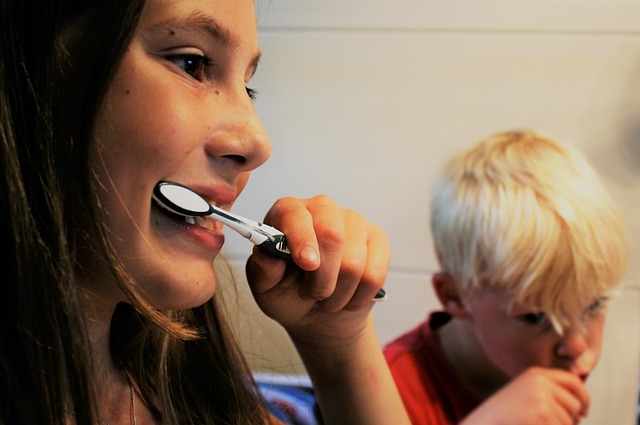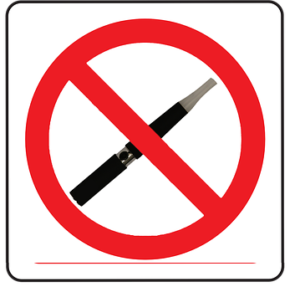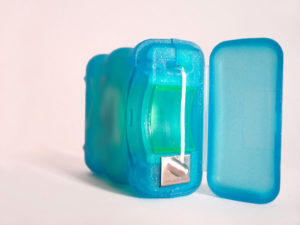Dentist in Hodges | The Truth Behind “Natural Whitening” Fads
Greenwood Dentist
Dentist Near Me

It seems like there is a new headline nearly every week featuring someone who swears their teeth are whiter and brighter due to their natural home remedy for stain removal. These articles showcase the idea that whitening can be cheap and easy, if in some cases unpleasant. It can be tempting to consider trying for brighter, whiter teeth without investing time and money on in-office or at-home whitening under a dentist’s care. However, before you pin your hopes on one of these “natural whitening” methods, take a look at the truth behind some of the recent fads.
Fad 1: Oil Pulling
Oil pulling has been cropping up in headlines for months with claims of a wide variety of potential health benefits. It is a very old folk remedy in which a person swishes a tablespoon of edible oil, such as coconut, sunflower, olive, etc., in their mouth and between teeth for up to 20 minutes daily.
Despite the number of years this practice has existed and the number of health issues it purports to treat, there is no evidence that oil pulling whitens teeth or improves health.
Fad 2: Fruits
Due to celebrity endorsement, some people have begun to try rubbing mashed strawberries on their teeth to try to achieve a whiter smile. Others are using lemon or orange peels, and still others tout the virtues of eating pineapple or swishing apple cider vinegar.
However, there is no science to support any of these claims. In fact, one recent study found that brushing with a mixture of baking soda (which is known to have whitening effects on teeth) and strawberries did not whiten teeth. Even worse, the citric acids found in all of these fruits and vinegars can actually be harmful to the enamel on your teeth.
Fad 3: Hydrogen Peroxide
While it is true that many forms of in-office and over-the-counter teeth whitening make use of hydrogen peroxide, there is more to consider before opening a bottle. The hydrogen peroxide used in professional teeth whitening, whether in-office or at-home, is mixed with other substances and provided in a form designed for use in teeth whitening.
Simply swishing from a bottle of hydrogen peroxide will have little or no effect on the whiteness of your teeth, but may cause irritation to your gums and mouth and can be dangerous if accidentally ingested.
If you want whiter, brighter teeth, there are safe and effective ways to achieve your goal. Talk with our doctor for a recommendation for what kind of whitening will be best for your needs. For more information about whitening, contact our office.
3404 Cokesbury Road, Hwy 254 Hodges, SC 29653
Located across from Parkseed.
Phone: (864) 227-6911



 The hazards surrounding vaping are not entirely clear. More research is needed in this area, but a recent study indicates that e-cigarette vapors could be damaging to your mouth. Here’s what you need to know.
The hazards surrounding vaping are not entirely clear. More research is needed in this area, but a recent study indicates that e-cigarette vapors could be damaging to your mouth. Here’s what you need to know. Maintaining your gum health is vital to your overall health. When you visit our office for an examination, our trained hygienists perform a periodontal exam. In fact, during your examination, our team is quietly assessing your oral health by performing a number of checks. Here’s what you need to know about periodontal disease.
Maintaining your gum health is vital to your overall health. When you visit our office for an examination, our trained hygienists perform a periodontal exam. In fact, during your examination, our team is quietly assessing your oral health by performing a number of checks. Here’s what you need to know about periodontal disease. Most serious oral health issues can be prevented by maintaining an effective routine of dental hygiene and in-office care. However, you could be at higher risk for some oral illnesses due to hereditary factors. Awareness and proper treatment can help minimize these risks. Here are a few of the most common oral health concerns that are affected by genetics.
Most serious oral health issues can be prevented by maintaining an effective routine of dental hygiene and in-office care. However, you could be at higher risk for some oral illnesses due to hereditary factors. Awareness and proper treatment can help minimize these risks. Here are a few of the most common oral health concerns that are affected by genetics. Dentist 29653
Dentist 29653 A canker sore can make eating, drinking, and talking difficult and even painful. Maintaining your oral health by brushing and flossing may also be difficult with a sore in your mouth, but keeping up with your daily oral hygiene routine is an important step in the healing process. We’ve put together a short guide to everything you need to know about canker sores.
A canker sore can make eating, drinking, and talking difficult and even painful. Maintaining your oral health by brushing and flossing may also be difficult with a sore in your mouth, but keeping up with your daily oral hygiene routine is an important step in the healing process. We’ve put together a short guide to everything you need to know about canker sores. Tooth sensitivity is a condition that can make everyday activities such as eating, drinking, and even walking outside in colder weather painful and unpleasant. If you frequently experience a sharp burst of pain in your teeth when drinking coffee, eating ice cream or being hit by a gust of cold air, sensitive teeth may be the cause. Sensitive teeth are a common, though frustrating issue. The Academy of General Dentistry (AGD) estimates that up to 40 million adults in the United States suffer from this condition.
Tooth sensitivity is a condition that can make everyday activities such as eating, drinking, and even walking outside in colder weather painful and unpleasant. If you frequently experience a sharp burst of pain in your teeth when drinking coffee, eating ice cream or being hit by a gust of cold air, sensitive teeth may be the cause. Sensitive teeth are a common, though frustrating issue. The Academy of General Dentistry (AGD) estimates that up to 40 million adults in the United States suffer from this condition. Loose teeth, bad breath, and painful, bloody gums – these are among the signs and symptoms of periodontal, or gum, disease. Unfortunately, periodontal disease can also begin without any obvious symptoms. If left undiagnosed or untreated, you could be at risk for irreparable damage to your teeth and gums. The good news is that periodontal disease is preventable. In fact, one of the most effective tools for preventing the disease only takes a minute of your time each day.
Loose teeth, bad breath, and painful, bloody gums – these are among the signs and symptoms of periodontal, or gum, disease. Unfortunately, periodontal disease can also begin without any obvious symptoms. If left undiagnosed or untreated, you could be at risk for irreparable damage to your teeth and gums. The good news is that periodontal disease is preventable. In fact, one of the most effective tools for preventing the disease only takes a minute of your time each day. Did you know that tooth decay is the single largest cause of school absences? The longer decay goes untreated, the worse it gets. Not only can this mean costlier expenses for you, but it also jeopardizes your child’s oral health and education. You can help your child have a healthy, happy smile by taking a few steps to defend against tooth decay. Here are three steps you can take at home.
Did you know that tooth decay is the single largest cause of school absences? The longer decay goes untreated, the worse it gets. Not only can this mean costlier expenses for you, but it also jeopardizes your child’s oral health and education. You can help your child have a healthy, happy smile by taking a few steps to defend against tooth decay. Here are three steps you can take at home.






